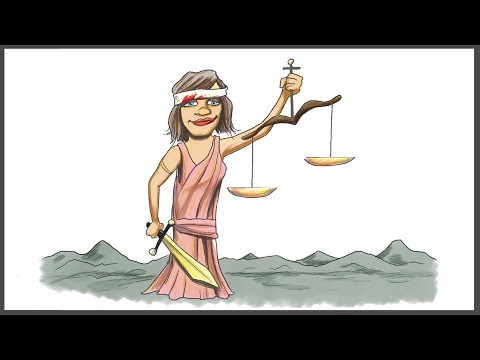
The Role and Responsibilities of the Head of Legal in an Organization
Welcome to this informative article on the crucial role of the Head of Legal in an organization. In today’s complex business landscape, navigating the intricate world of law is no small feat. Organizations rely heavily on legal expertise to ensure compliance, protect their interests, and mitigate risks. The Head of Legal plays a pivotal role in guiding and safeguarding the legal affairs of the organization.
Disclaimer: It is important to note that while this article aims to provide valuable insights, it should not be considered a substitute for professional legal advice. The intricacies of law can vary depending on jurisdiction, industry, and other factors. Therefore, it is always prudent to consult with legal advisors and cross-reference information from reliable sources specific to your situation.
📋 Content in this article
Now, let’s delve into the key responsibilities and functions of the Head of Legal:
1. Legal Counsel: The Head of Legal acts as a trusted advisor to the organization’s leadership team, offering expert legal counsel. They provide guidance on legal matters, including contracts, regulations, and compliance issues. By understanding the organization’s goals, the Head of Legal helps make informed decisions that align with both legal requirements and business objectives.
2. Risk Management: Managing legal risks is a crucial aspect of the Head of Legal’s role. They identify potential legal risks and develop strategies to mitigate them, ensuring the organization operates within the boundaries of the law. This includes drafting and reviewing contracts, policies, and procedures to minimize legal exposure.
3. Compliance: Staying compliant with laws and regulations is essential for any organization’s long-term success. The Head of Legal ensures that the organization operates within the legal framework applicable to its industry. They monitor changes in laws, regulations, and industry standards to proactively adapt policies and practices accordingly.
4. Dispute Resolution: In the unfortunate event of legal disputes, the Head of Legal takes
Essential Skills for a Leadership Role in the Legal Field
The Role and Responsibilities of the Head of Legal in an Organization
In today’s complex and dynamic business environment, the role of the Head of Legal in an organization has become increasingly crucial. As the legal landscape continues to evolve, organizations need leaders who possess a unique set of skills that enable them to navigate legal challenges and ensure compliance with the law.
The Head of Legal, also known as the General Counsel or Chief Legal Officer, is responsible for overseeing all legal matters within the organization. This includes providing legal advice and guidance to senior management, managing litigation and regulatory affairs, and ensuring the organization’s compliance with applicable laws and regulations.
To excel in this leadership role, individuals must possess a range of essential skills. These skills are essential for effectively managing legal risks, leading a legal team, and proactively guiding the organization through legal challenges. Some of these key skills include:
Understanding the Distinction: General Counsel vs. Head of Legal in Corporate Settings
Understanding the Distinction: General Counsel vs. Head of Legal in Corporate Settings
In the corporate world, legal departments play a crucial role in ensuring compliance with the law and protecting the interests of the organization. Two key positions within a legal department are the General Counsel and the Head of Legal. While these titles may seem interchangeable, they actually represent distinct roles and responsibilities. Let’s delve into the nuances of each position and understand their significance in a corporate setting.
The Role of the General Counsel:
The General Counsel is the highest-ranking legal officer within a company. This position typically reports directly to the CEO or the board of directors. General Counsel is responsible for providing legal advice and guidance to senior management and overseeing all legal matters affecting the organization. Some key responsibilities of the General Counsel include:
1. Legal Strategy: General Counsel plays a crucial role in formulating and implementing the organization’s legal strategy. y assess potential legal risks, develop policies to mitigate those risks, and ensure compliance with applicable laws and regulations.
2. Risk Management: General Counsel identifies and manages legal risks that could impact the organization. y review contracts, negotiate deals, and provide guidance on potential liabilities to protect the company’s interests.
3. Corporate Governance: General Counsel ensures compliance with corporate governance requirements, including regulatory filings, shareholder communications, and board meetings.
4. Litigation Management: In the event of legal disputes or litigation, the General Counsel oversees the organization’s legal representation. y work closely with external counsel and internal stakeholders to develop a winning legal strategy.
5. Compliance Programs: General Counsel establishes and monitors compliance programs to ensure adherence to laws, regulations, and industry standards. y provide training to employees on legal matters and promote a culture of compliance within the organization.
The Role of the Head of Legal:
The Head of Legal, on the other hand, is responsible for managing the day-to-day operations of the legal department. y report to the General Counsel and oversee a team of attorneys and legal professionals.
Title: The Role and Responsibilities of the Head of Legal in an Organization: Importance and Current Relevance
Introduction:
The role of the Head of Legal in an organization is crucial in ensuring compliance with the law, managing legal risks, and providing guidance on legal matters. This article aims to provide a comprehensive understanding of the responsibilities and importance of this position. It is essential for readers to verify and cross-reference the information presented here, as laws and regulations can vary based on jurisdiction and may change over time.
1. Core Responsibilities of the Head of Legal:
The Head of Legal is responsible for overseeing and managing legal affairs within an organization. Some key responsibilities include:
2. Importance of Staying Current on Legal Matters:
Given the dynamic nature of legal frameworks, it is crucial for the Head of Legal to stay current on legal matters. This is important for several reasons:
